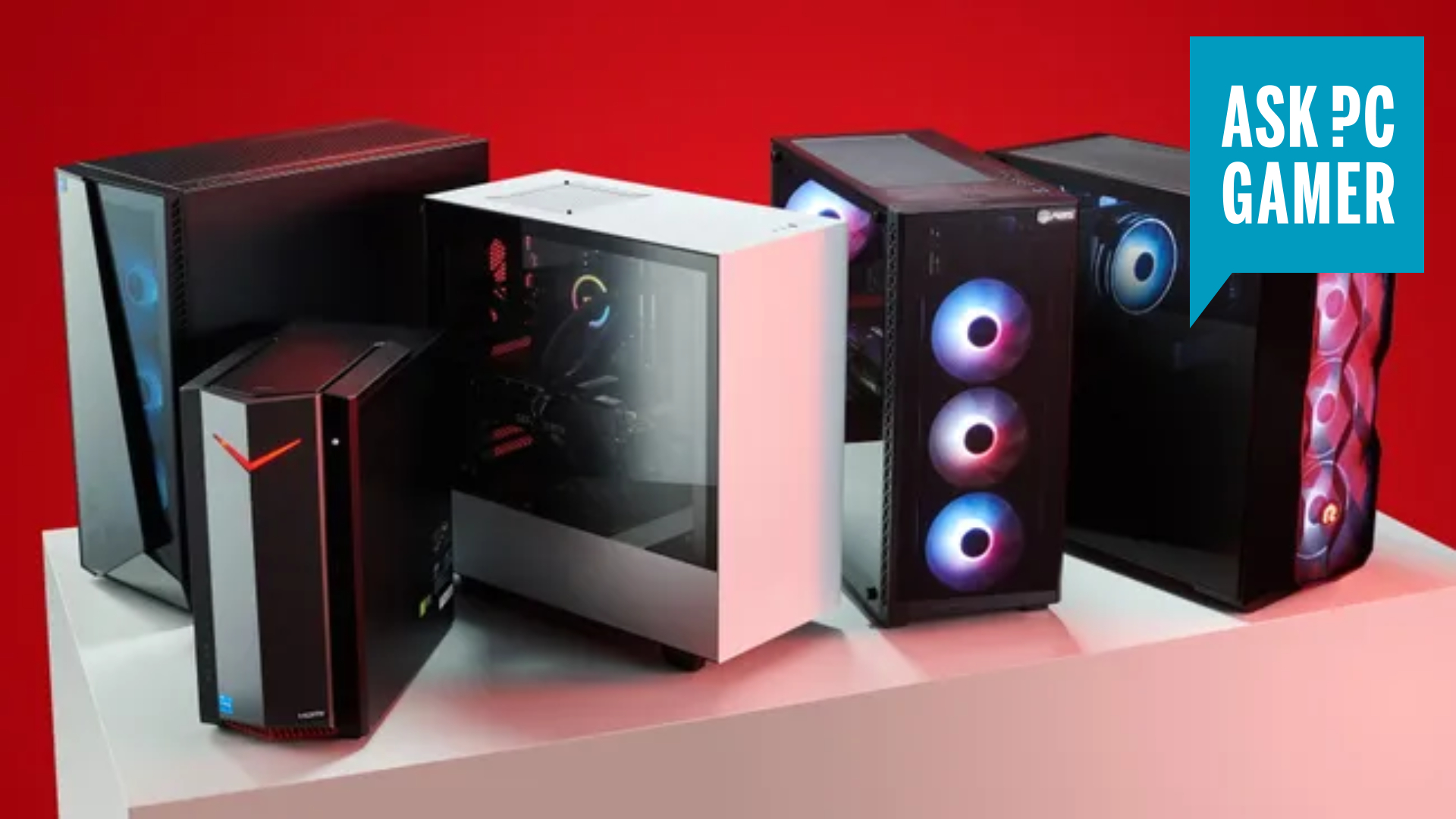
Buying your first gaming PC can be an intimidating task. Acronyms, backronyms, model and part numbers galore, it can be easy to find yourself drowning in terminology that at first glance can seem difficult to decode. While you can absolutely buy the components individually and build your own, many first-time buyers opt to buy one ready-made, or "prebuilt" to make the experience easier.
However, even these machines can seem swamped with information and figures that can make your eyes cross if you don't know what to look for.
That's where we come in! We've got the know-how and experience to break down all this information into an easy-to-follow guide that should make the process much simpler, and ensure that you end up buying the best gaming PC that's right for you, a loved-one, or anyone who wants a great gaming system.
In this guide we'll go through all the components to look for in a good gaming PC, step by step, and make sure you're armed with the knowledge you need to make sure you spend your hard-earned cash wisely. By the end you should have a complete reference as to what to look for when buying a gaming PC, and what to avoid as well.
System builders we recommend
Here's a quick rundown of prebuilt system builders we recommend. In our experience these providers deliver well-specced machines for good prices, and you'll find gaming PCs from these builders making regular appearances in our buying guides.
It should be noted that this list is far from comprehensive, so if, after reading this guide, you find a gaming PC deal that seems to fit all the right parameters but isn't built by a provider on this list, it's a good idea to check the user reviews to make sure other buyers have been receiving quality machines.
- Skytech
- ABS
- Yeiyan
- Zotac
- Cyberpower
- MSI
- HP
- Corsair
- Lenovo
- Origin
Where can I find the best deals on gaming PCs?
Why, on our cheap gaming PC deals page of course! Still, seeing as you're here, here are some outlets that often provide the best deals on prebuilt gaming PCs.
- Newegg: Often some of the best deals on gaming desktop PCs
- Best Buy: Good deals on many prebuilts and gaming laptops
- Amazon: Often great prices on PCs from reputable builders
- Dell: Discounts on many Alienware gaming PCs
- HP: Regular offers on desktop gaming PCs and laptops
- Lenovo: Deals on Lenovo Legion gaming desktops
And here are some examples of systems that we would consider good value to use as reference in terms of the sort of specs you should expect at a given price point.
What CPU should I buy?
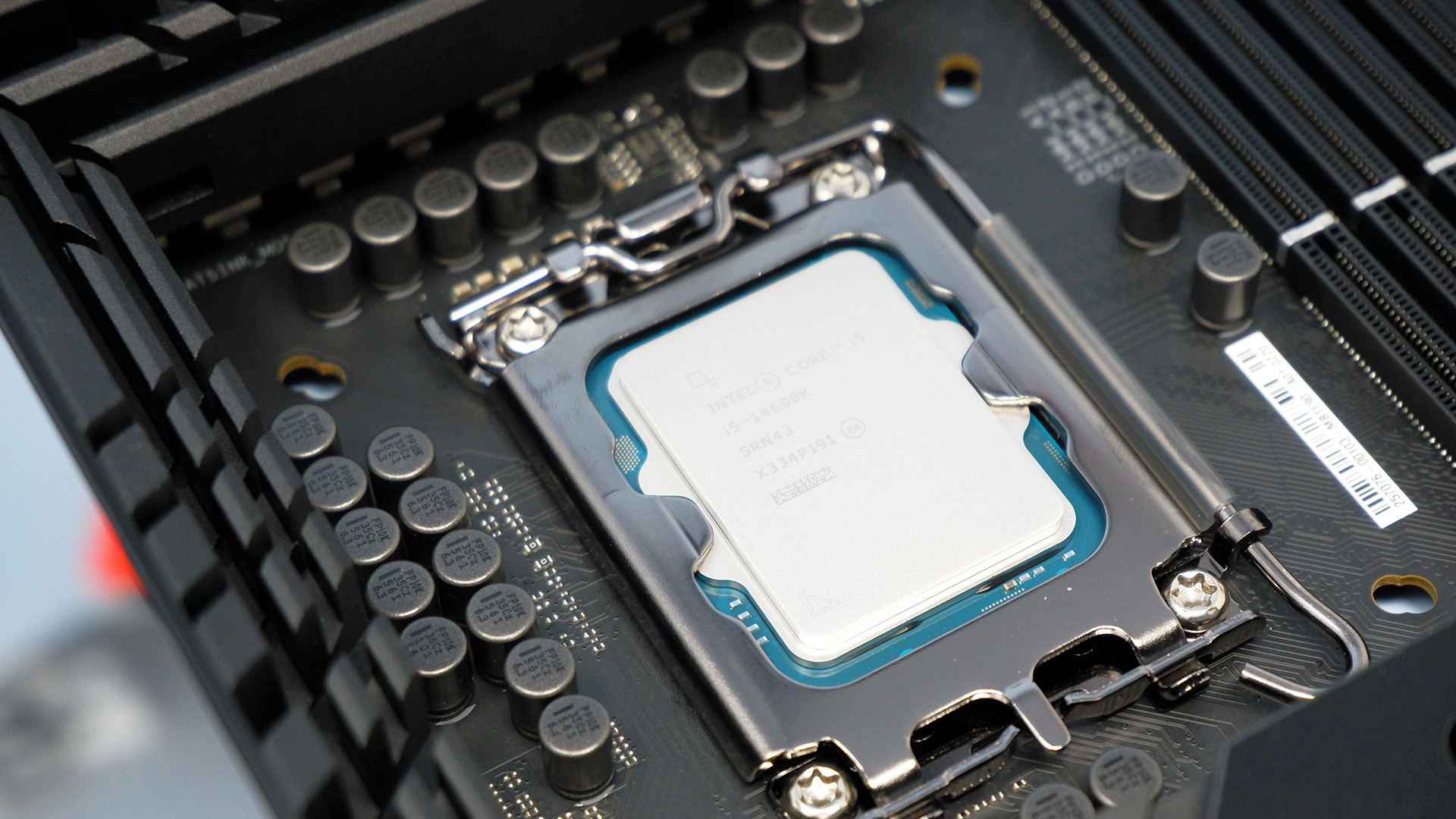
- A fast CPU is an essential part of a good gaming PC
- In the case of Intel CPUs, aim for Core i5, Core i7 and Core i9 chips, ideally 10th generation and above
- For AMD, the Ryzen 5000-series and 7000-series make great gaming CPUs
A CPU, or "Central Processing Unit" is one of the absolute core components of any PC, gaming or otherwise. Think of it as the brain of your machine, grabbing and processing information to send to the other components. As a result, for gaming you'll need a reasonably quick CPU to ensure that your games run smoothly, and any CPU that's good at gaming should also work well for every other task you can throw at it, from day-to-day productivity tasks to media processing.
There are two major manufacturers to consider here when picking the right gaming PC processor for you: Intel and AMD. Both make chips that are capable of crunching through your games with ease, from very capable budget options all the way up to extreme high-performance CPUs.
Intel gaming CPUs
Let's start off with Intel. Intel CPUs come in a variety of designations, but for our purposes what you're likely looking for are PCs featuring chips in the Intel "Core" family, and the main thing to pay attention to is the number after the "i" in the designation i.e. "Core i5", which designates which sub-family of chips the processor is part of.
For gaming, you'll likely want to be looking for CPUs designated "Core i5" or above. While Core i3 chips can be used for gaming, they're a more budget-focussed option, so i5 and upwards is where you want to be for the best performance.
✅ Best budget: Intel Core i5 13400F
✅ Best mid-range: Intel Core i5 13600K
✅ Best high-end: Intel Core i9 13900K
After the "i" designation, you'll then find a long number like "Intel Core i5 14600K". The first two digits specify which generation the processor is part of, with higher numbers being more recent and "14" being the most up-to-date, while the numbers after indicate which specific model it is.
The letter at the end shows what series the processor is, which can mean things like being unlocked for overclocking, although for now we'll leave that complicated subject where it is. This is your first gaming PC after all, so really all you're after is a fast gaming CPU straight out of the box.
Time for another general rule: If the Intel-equipped PC you're looking at features something like a Core i5 or above, with a number higher than "10000" after it, then it should be suitable as a gaming CPU, although the higher the numbers and the more recent the generation, often the better.
We've got a whole list of recommendations for the best gaming CPUs if you'd like to go more in-depth, but seeing as we're keeping this as simple as we can for first time buyers, that's where we'll leave it for now.
AMD gaming CPUs
Your other option for PC gaming processors is AMD. Both Intel and AMD compete with each other to produce the fastest chips, and are locked in something of an arms race to make the best gaming CPUs. As a result, either manufacturer's CPUs can make a great option for a good gaming PC, providing you pick the right one.
We'd recommend looking at AMD Ryzen processors from the Zen 3 or Zen 4 generation, and you'll find these use model numbers ranging from "5000" to "7000".
Here's where things get slightly tricky. AMD 5000-series processors use an older motherboard socket called AM4. While CPUs using this socket can still be very quick for gaming, the newer 7000-series chips use a different socket referred to as AM5. What this means in practice is that if you buy a gaming PC with a 5000-series processor, if you wanted to upgrade it to one of the newer chips in future you'd need to buy a new motherboard as well.
✅ Best budget: AMD Ryzen 5 5600 (AM4)
✅ Best mid-range: AMD Ryzen 7 7700 (AM5)
✅ Best high-end: AMD Ryzen 7 7800X3D (AM5)
As a result, if you're planning on buying a PC that you want to use as a base for upgrading as time goes on, it might be worth thinking about buying an AM5 platform (again, 7000-series CPUs) to save you the hassle of upgrading the motherboard as well later down the line.
Apologies about that one, it's complicated. Still, whatever route you end up taking, an AMD 5000-series or 7000-series CPU is a good pick for a gaming PC CPU. Something else to watch out for is the "X3D" designation on the end of the CPU series number, like the AMD Ryzen 7 5800X3D or AMD Ryzen 7 7800X3D.
These chips make use of something called 3D V-Cache to deliver excellent gaming performance, and in the case of the latter chip means it's about the fastest gaming CPU you can buy, although machines using it are likely to be fairly expensive as a result.
What graphics card should I buy?
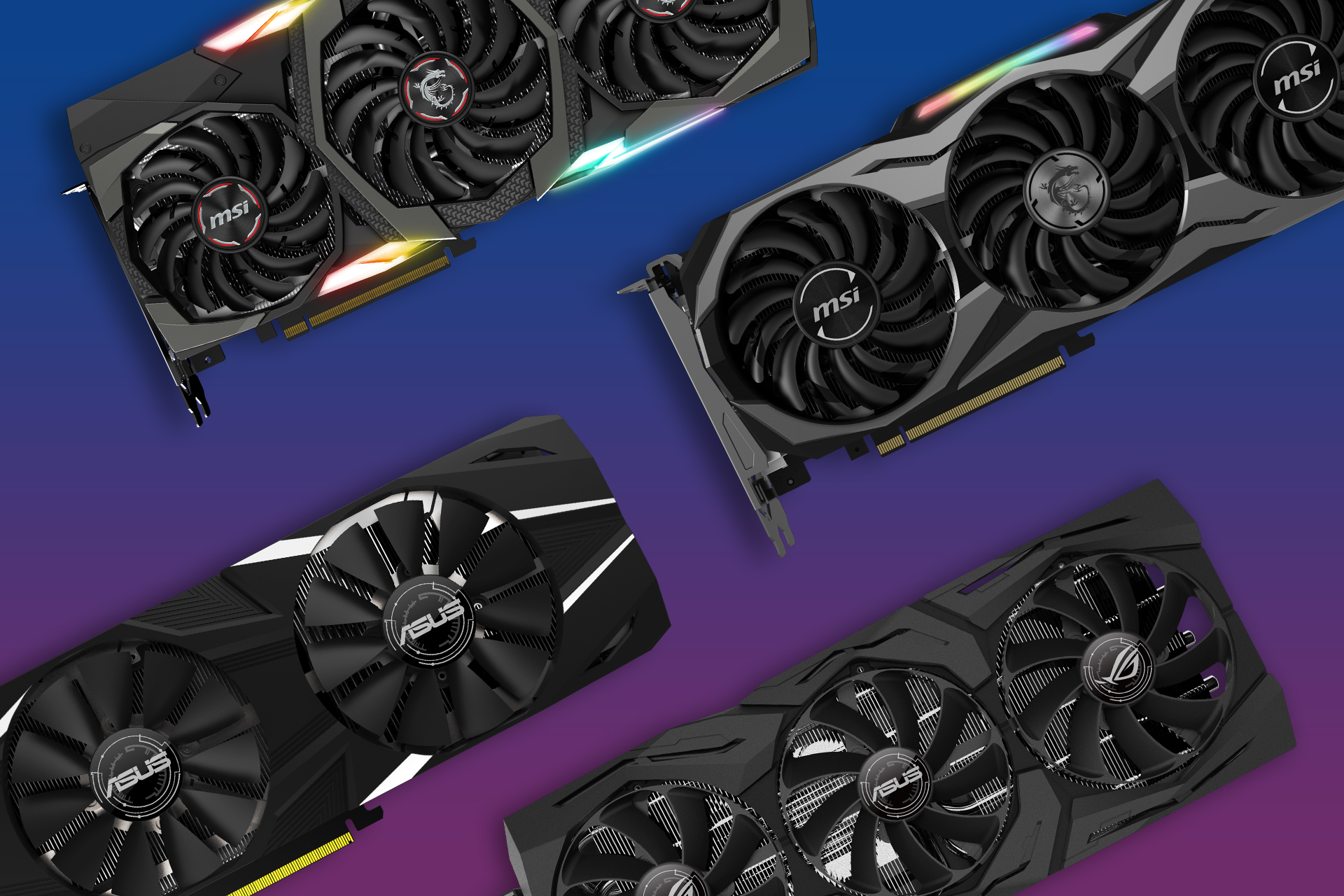
- A graphics card or GPU is a very important part of any gaming PC, as while modern CPUs do have onboard graphics of their own, a proper gaming GPU will deliver much better performance
- Nvidia, AMD, and Intel are the major GPU manufacturers to look out for, although Intel cards do have some caveats as things currently stand
- We recommend buying PCs with Nvidia cards from the current generation, the 40-series, and AMD cards from the 6000 and 7000-series
While a fast CPU is definitely important in a good gaming PC, nothing makes quite as much difference as a fully-fledged gaming GPU, sometimes referred to as a graphics card. While modern CPUs do have onboard graphics, the best graphics cards will deliver stunning image quality at high frame rates, meaning your games will look great and run smoothly too.
There are three main names to look out for here when PC shopping: Nvidia, AMD, and Intel. We'll deliver a rundown of each manufacturer and what cards to look out for in your gaming PC purchase, to ensure that you get the right GPU for your gaming needs.
A quick jargon buster: You'll see us using terms like "1080p", "1440p" and "4K" in the following text. These are common screen resolutions you'll use for gaming, providing your monitor can support them. 1080p is considered the minimum resolution you'll want to run your games at, and is the least stressful on your hardware, although arguably the worst-looking. 1440p is considered the sweet-spot for good image quality and performance, whereas 4K looks stunning, but is very demanding on your PC.
Nvidia graphics cards
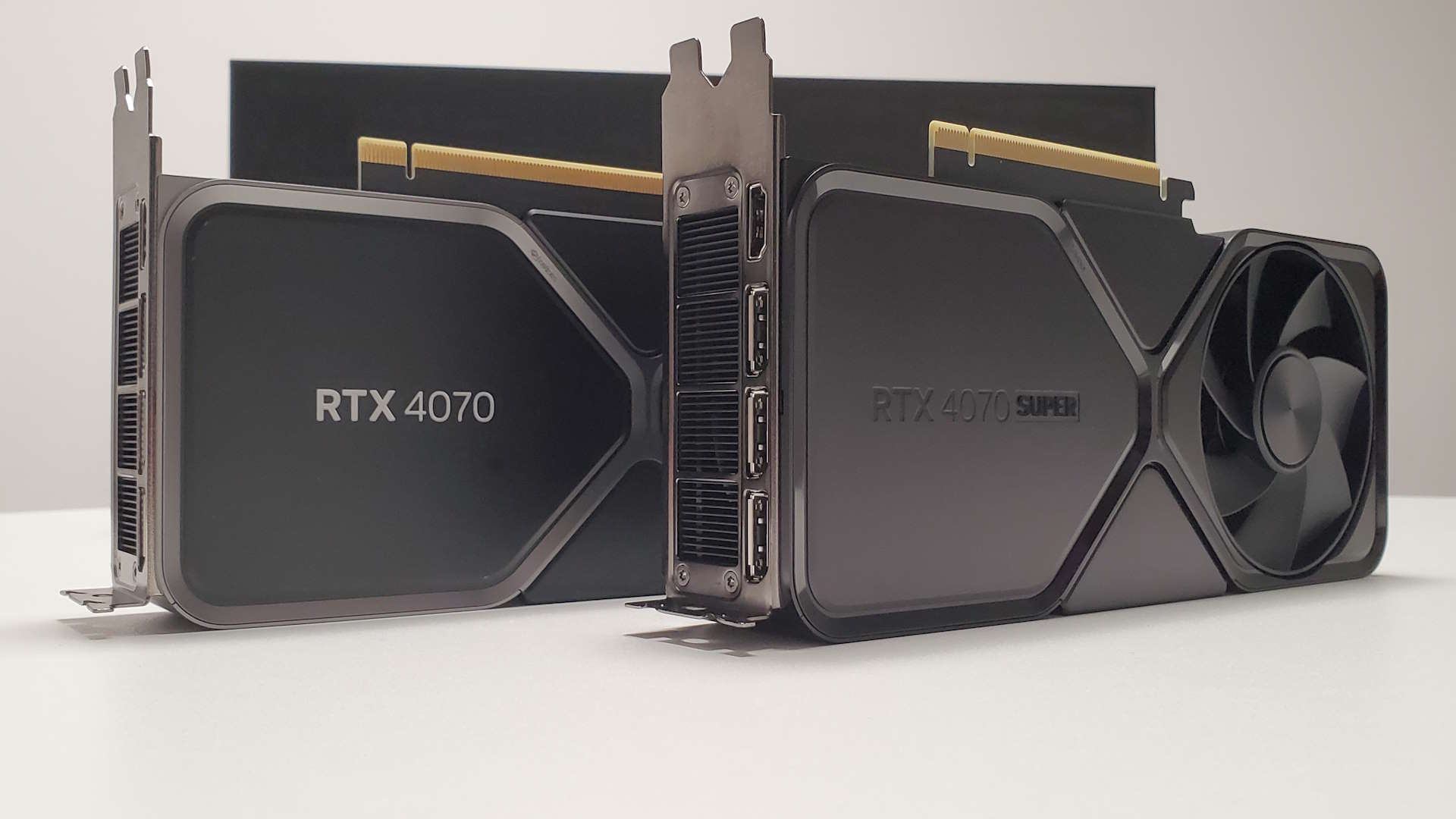
Nvidia is the go-to choice for many gamers, and it makes a range of GPUs that make for great additions to any gaming PC, from the cheap yet powerful all the way through to the fastest gaming graphics card you can currently buy.
If you're going for a machine with an Nvidia card, we currently recommend buying something from the latest RTX 40-series of GPUs. While cards from the previous generations can still perform well in games, you'll often find that prebuilts featuring these GPUs are a little dated in other components, and RTX 40-series cards have a distinct advantage over their predecessors in the form of DLSS 3.
This is an upscaling technology that can boost frame rates and image quality in your games by taking some of the strain off the GPU, even adding in extra AI-generated frames to make everything look super-smooth in the case of something called Frame Generation. You'll need a 40-series card to take advantage of it though, hence the recommendation.
The minimum Nvidia GPU we'd recommend for gaming is the RTX 4060. It's a budget card, but with the help of DLSS 3 it can still deliver decent gaming performance at 1080p and 1440p. Sitting above that is the RTX 4060 Ti, a faster version that'll do very well for budget gamers looking for great performance.
✅ Best budget: RTX 4060 Ti
✅ Best mid-range: RTX 4070 Super
✅ Best high-end: RTX 4090
Above that, we have the RTX 4070. This is a very capable card for 1440p gaming, and can even make some forays into 4K with the help of DLSS 3. It makes a superb mid-range choice for most gamers, and has been a very popular card since its release.
Nvidia also makes Super and Ti variants of many of its cards, and the RTX 4070 is no exception. The RTX 4070 Super is faster than the regular version and makes a great buy, but if you're looking to spend a decent chunk more you can find a gaming PC with the RTX 4070 Ti or RTX 4070 Ti Super instead. These are both very fast GPUs, and push beyond mid-range into genuinely high-end territory.
Above that, you're really getting into some of the most performant cards you can put in a gaming PC right now. These come in the form of the RTX 4080, and RTX 4080 Super. Both make great choices for a gaming rig, and will carve through most games at 1440p and even 4K with the settings turned up if you make use of DLSS.
Sitting at the very top of the stack is the RTX 4090. This is simply a stupendously powerful GPU, the fastest graphics card you can currently buy, and it even beats out the RTX 4080 cards by a considerable margin. As a result, gaming PCs with this GPU installed are at the top end of what you'll pay for a prebuilt, although it's worth noting that given just how powerful this GPU is, you're unlikely to need to upgrade it for quite a few years to come.
AMD graphics cards
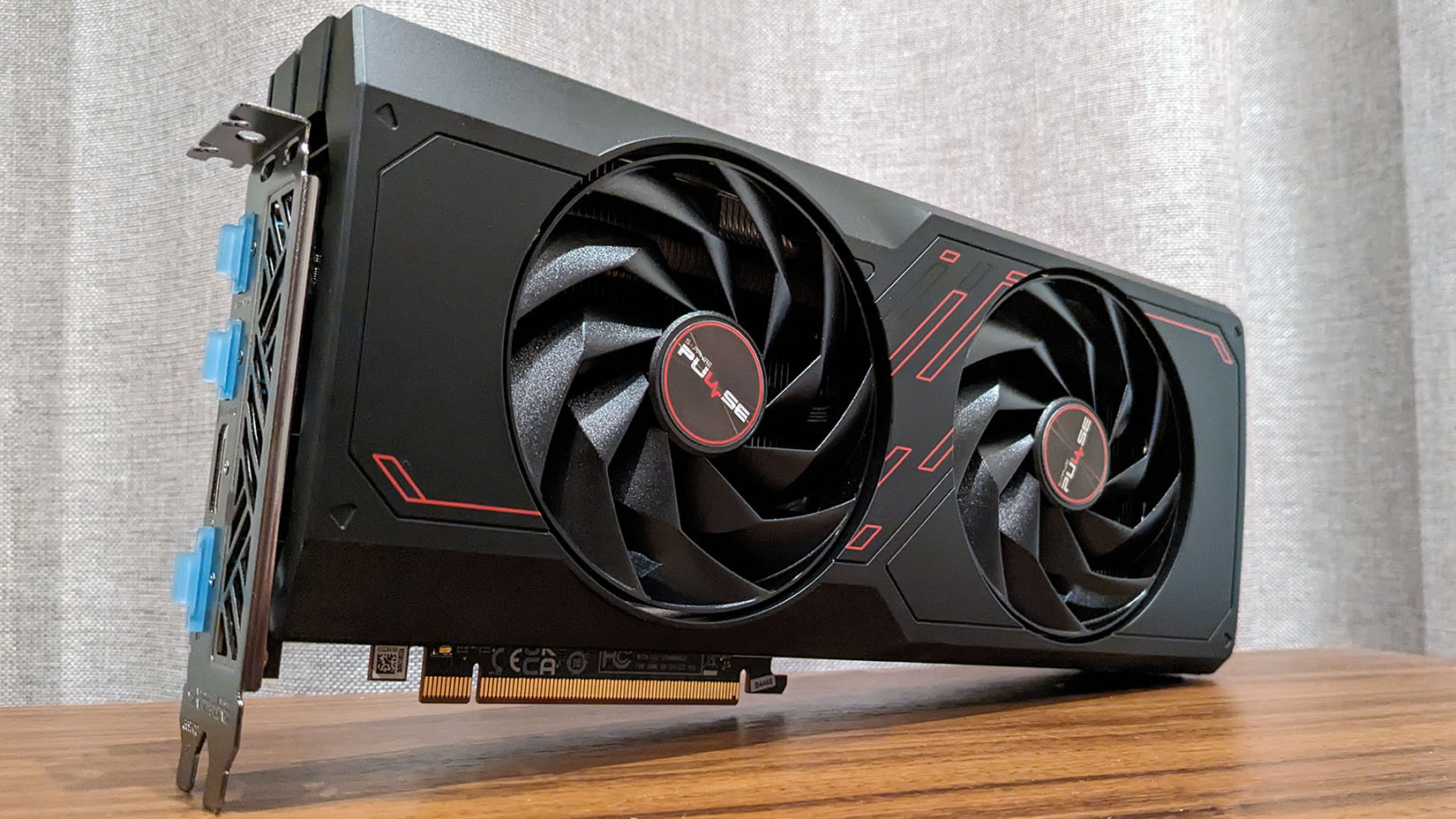
AMD is Nvidia's biggest competitor in the GPU market, and makes some very powerful graphics cards for gaming. While the RX 7000-series is the most recent generation, the performance gains over the outgoing RX 6000-series are sometimes relatively small, so we still recommend cards from both ranges for a gaming rig.
Modern AMD cards are able to make use of the latest version of FSR, FSR 3, which is AMDs upscaling equivalent to DLSS 3. It's not hugely well-supported but works relatively well, although FSR will also work on all major modern graphics cards, including those from Nvidia.
Starting off at the bottom, the minimum AMD GPU you should be looking for in a gaming PC is the Radeon RX 7600. It's an entry level graphics card like the Nvidia RTX 4060, but puts in a reasonable performance for 1080p gaming, and PCs featuring this card should be relatively cheap. There's also the slightly faster Radeon RX 7600 XT as another budget option to consider.
Moving upwards, there's the Radeon RX 6700 XT and Radeon RX 7700 XT. Both of these cards are solid budget to mid-range performers at 1080p and 1440p, but it's worth mentioning that the next cards up in the stack can sometimes be roughly equivalent in price, and this often translates to gaming prebuilt prices too.
✅ Best budget: RX 7600
✅ Best mid-range: RX 7800 XT
✅ Best high-end: RX 7900 XTX
Here we find the Radeon RX 6800, RX 6800 XT, and RX 7800 XT. These are powerful upper mid-range cards, and any of them would make a great 1440p gaming GPU, with the more modern Radeon RX 7800 XT slightly leading the pack.
Above that, we're now into the high-end territory, often with high-end prices to suit. These are called the Radeon RX 7900 GRE, the Radeon RX 7900 XT, and the Radeon RX 7900 XTX, in performance order going from slowest to fastest, although none of these GPUs could be called slow in relative terms. In fact, they're a group of the fastest graphics cards AMD currently makes, with the RX 7900 XT and RX 7900 XTX standing out as the highest-end cards in the stack.
While neither of these cards can quite stack up the Nvidia RTX 4090 above, you can sometimes find them in cheaper prebuilt PCs than a gaming PC featuring the big Nvidia card, and while the performance is technically lesser they will still provide excellent frame rates and image quality at 1440p and 4K.
Intel graphics cards
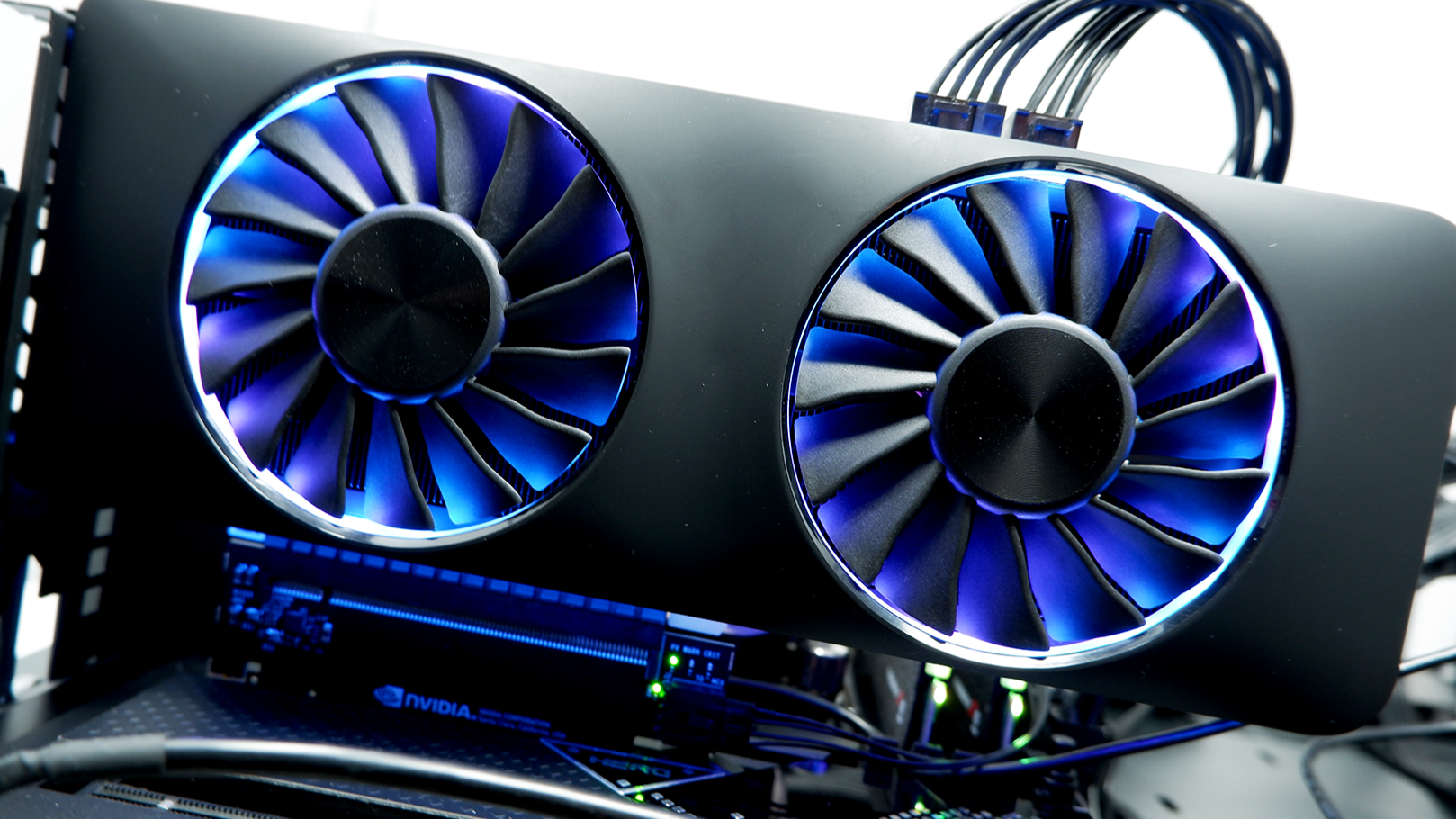
Intel might be a gigantic name in the world of computing in general, but when it comes to graphics cards, it's a relative newcomer. While Intel does make some relatively powerful gaming GPUs they do tend to struggle with drivers, which are the software interface between the graphics card and your games.
As a result, they can be a bit fiddly and sometimes require some tweaking to get the most out of. For a first time buyer, this is unlikely to be what you're after, so while Intel GPUs are indeed sometimes a good choice for a gaming PC, for your first machine or a machine for a loved one we'd buy something with one of the Nvidia or AMD GPUs recommended above instead.
How much RAM do I need, and how fast?
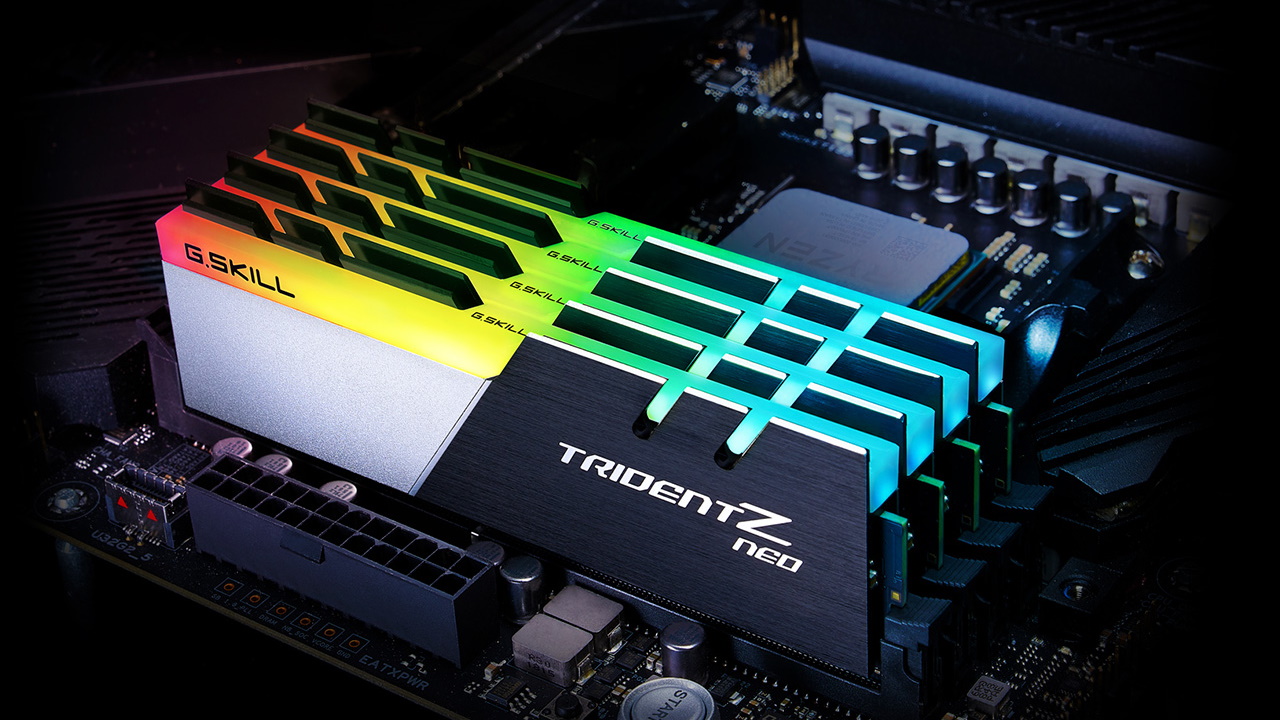
- 16GB of RAM is the minimum we would advise for a modern gaming PC
- DDR4 or DDR5 is essential for a performance machine, with DDR5 being the faster of the two
- 32GB is not essential, but recommended for top-spec systems
- RAM speeds can make a small but still significant amount of difference, so high-speed RAM is advisable if possible
- Upgrading RAM is a very easy task on most machines, so buying a PC with 16GB of RAM and adding a 16GB stick of your own later is often a good move to save some money
RAM, or Random Access Memory, is used by your PC to temporarily store data for the CPU to access. In essence, when you open a program on your machine (like a game, for instance), the data is pulled from storage on to the RAM for processing. As a result you're going to want a good amount of RAM for gaming, and ideally for it to be high-speed.
For modern machines, the memory we're interested in is called DDR RAM, or double data rate. You'll find that, when looking at PC builds featuring the CPUs recommended above, this will either be DDR4 or DDR5. DDR3 and below has now been thoroughly phased out for machines capable of gaming, and would serve as a warning sign that the rest of the PC is not up to snuff for modern games.
Firstly, the most important thing is the amount. While 8GB machines are still just about able to scrape by, we would recommend 16GB of RAM as a minimum. This is because your operating system (usually Windows for a gaming machine) and all the background programs your PC runs alongside your games can take up a significant amount of space by themselves, and 8GB of RAM these days is simply too much of a squeeze.
If you're in the market for a very high-performance machine, 32GB of RAM has become a common figure to look for. 32GB of RAM should give your new system plenty of breathing room for even the most demanding of tasks.
When it comes to RAM speeds, this will be designated by a number after the DDR classification, something like DDR4 3200MHz or DDR5 5600MHz. While fast RAM can make a performance difference, the main thing to pay attention to is DDR4 and DDR5.
While DDR5 is significantly faster than DDR4, in terms of real world performance the difference between the two can be relatively small, although a system with high-speed DDR5 is likely to also have other high-speed components that make it a good performer. DDR4 is an older technology and machines using it may not be able to support DDR5 (like AM4 systems, for example), so a system using DDR4 may not be as upgradeable in future as something that already comes with DDR5.
It's worth noting that upgrading the RAM is one of the simplest tasks you can perform on a modern PC providing you buy the right type, so if you spot a good deal on something with 16GB of RAM and other good components, remember that you can likely add another 16GB stick to bring it up to 32GB very easily.
It's literally a matter of buying a compatible RAM stick, undoing the case panel and securely locking it into the correct slot on most machines, and something even a novice can do with very little effort.
How much storage do I need, and what type?
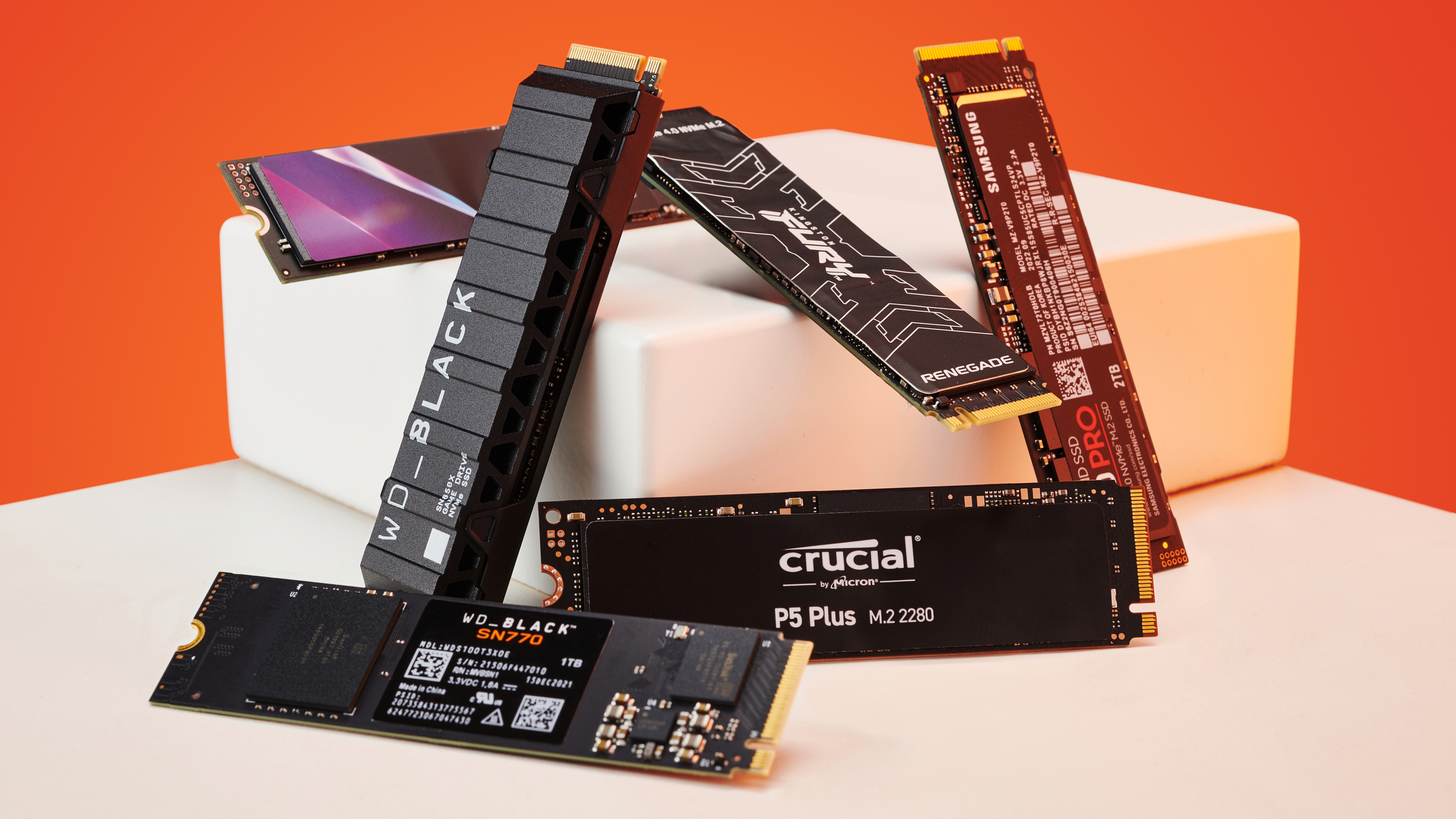
- 1TB of storage is considered a reasonable minimum for a modern gaming machine
- Avoid any PC with a HDD, or traditional hard drive as the main storage option. These are no longer fast enough for a good gaming experience
- Look out for the terms SSD, NVMe drive, or M.2 drive. These are fast storage options that will do well for both gaming and overall PC usage
- SATA SSDs are to be avoided on the whole for a new build. NVMe is a vastly superior storage solution for gaming
When it comes to storage, you're going to want a good amount to account for the fact that modern game install sizes are becoming increasingly large, especially for big new releases. While systems are still sold with 512GB drives, we would highly recommend a 1TB drive or larger to give you plenty of space for a Windows install, your commonly used programs and files, and a few large games.
While size of storage is important, more important still is the type of storage your potential new machine uses. Avoid anything with a traditional HDD, or hard disk drive. These are simply too slow for gaming, although having one as a secondary drive purely for storing files is fine.
What you're looking for is something referred to as an NVMe drive, sometimes called an M.2 drive. These are super-speedy in comparison to all other forms of storage, and a good one will load your operating system, programs and games at lightning fast speeds, keeping stutter to a minimum to boot.
These are a type of SSD, or solid state drive. While you can game from what's called a SATA SSD, we would tend to avoid them, as they're a fair bit slower than NVMe drives.
In terms of drive speeds, what you're ideally looking for is a Gen 3 or Gen 4 NVMe drive, with the latter being the faster of the two. Gen 5 drives do exist on the highest-spec machines, but they offer no real-world performance advantages for gaming, so we consider them unnecessary for most users for the time being.
Really when it comes to storage space, providing it's being delivered by a good Gen 3 or Gen 4 NVMe drive, we'd simply say that bigger is better. 2TB or even 4TB drives are becoming increasingly common, but much like the RAM we discussed above they're actually a pretty easy thing to upgrade later down the line, so don't feel like you have to buy a machine with 2TB straight away.
1TB will do you fine as a starter, and larger drives are relatively cheap to buy (particularly if you find a good deal on an SSD) and painless to install if you need more space in future.
What else do I need to buy?

- A great monitor makes a huge difference to your overall gaming experience, and should be your second priority once you've bought a good gaming PC
- Most prebuilts don't come with peripherals, so a good keyboard and mouse is essential unless you're planning to use ones you already own
- Good headphones or speakers add to your immersion
- A well-made gaming chair will keep you comfortable and help you avoid back pain and fatigue
If you've followed this guide, then chances are you've been able to nail down some likely candidates for a great gaming PC purchase. However, most prebuilts don't come with much beyond the actual PC itself, so we'll give you a quick rundown of everything else you might need to complete the gaming setup of your dreams.
Gaming monitor
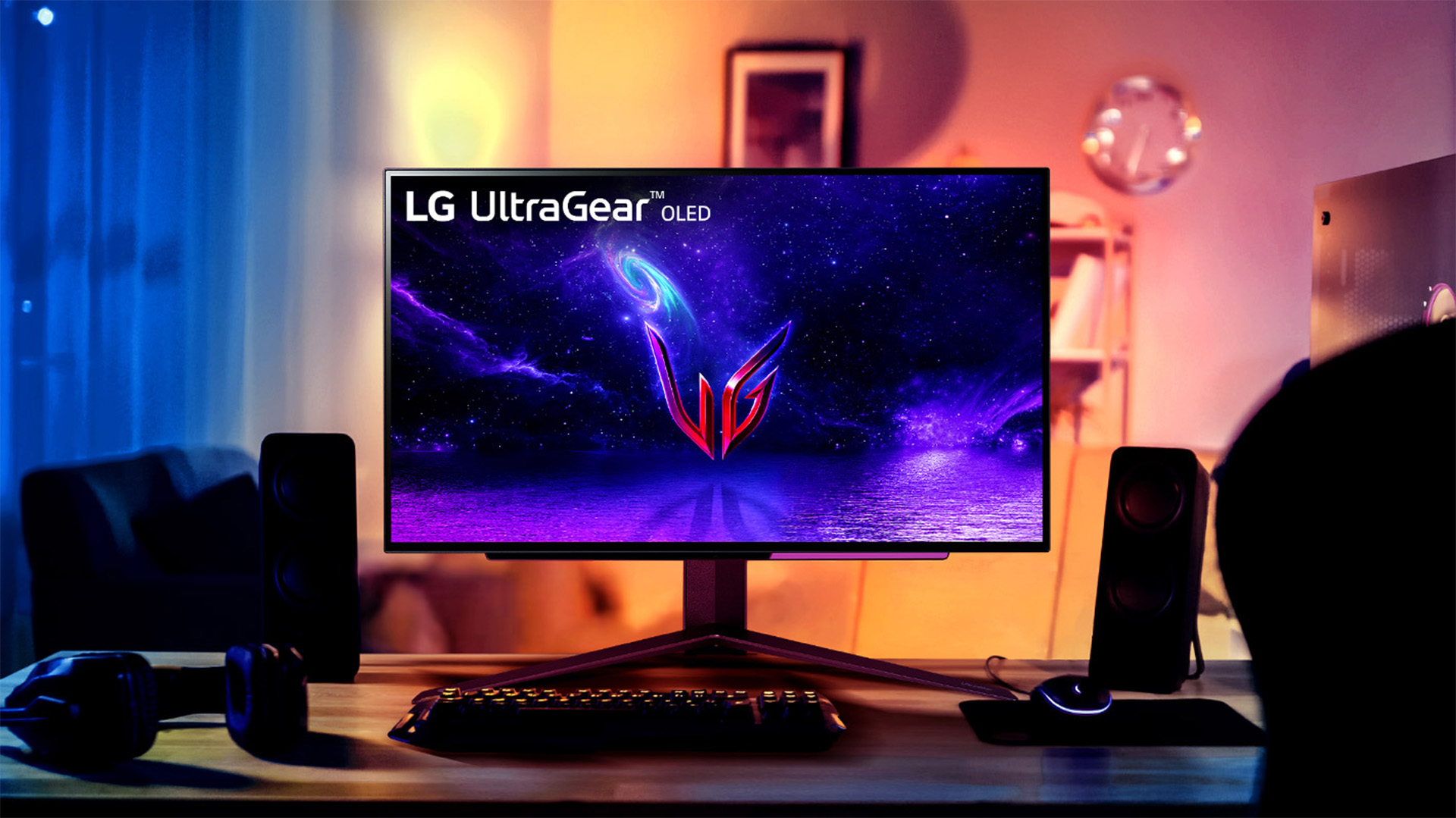
For a start, let's talk monitors. It'd be a shame if all that graphical horsepower was rendered through an old display you've had knocking around for years, as a great monitor can make a simply gigantic difference to how you perceive your games. We've got guides on some of the very best gaming monitors we've had the pleasure of testing along with, of course, deal pages that'll find you the best prices on gaming monitors, updated all year round.
1080p is now considered the minimum resolution for good image quality, while 1440p is still the sweet spot for the best balance between strain on your system and great looking games. For those of you that decided to spend up and buy something really high-end, perhaps featuring an immensely powerful GPU like the RTX 4080 or RTX 4090, then a 4K display will really show off all those pixels your new system is capable of pumping out at high frame rates.
Although you could always buy a panel capable of a very high resolution and drop it down in-game to take some of the strain off your machine, while still enjoying that beautiful panel for high-res media content. Monitors are a great place to invest your money on a really good model, as they're likely to last from machine to machine and for many years to come.
Gaming keyboards and mice
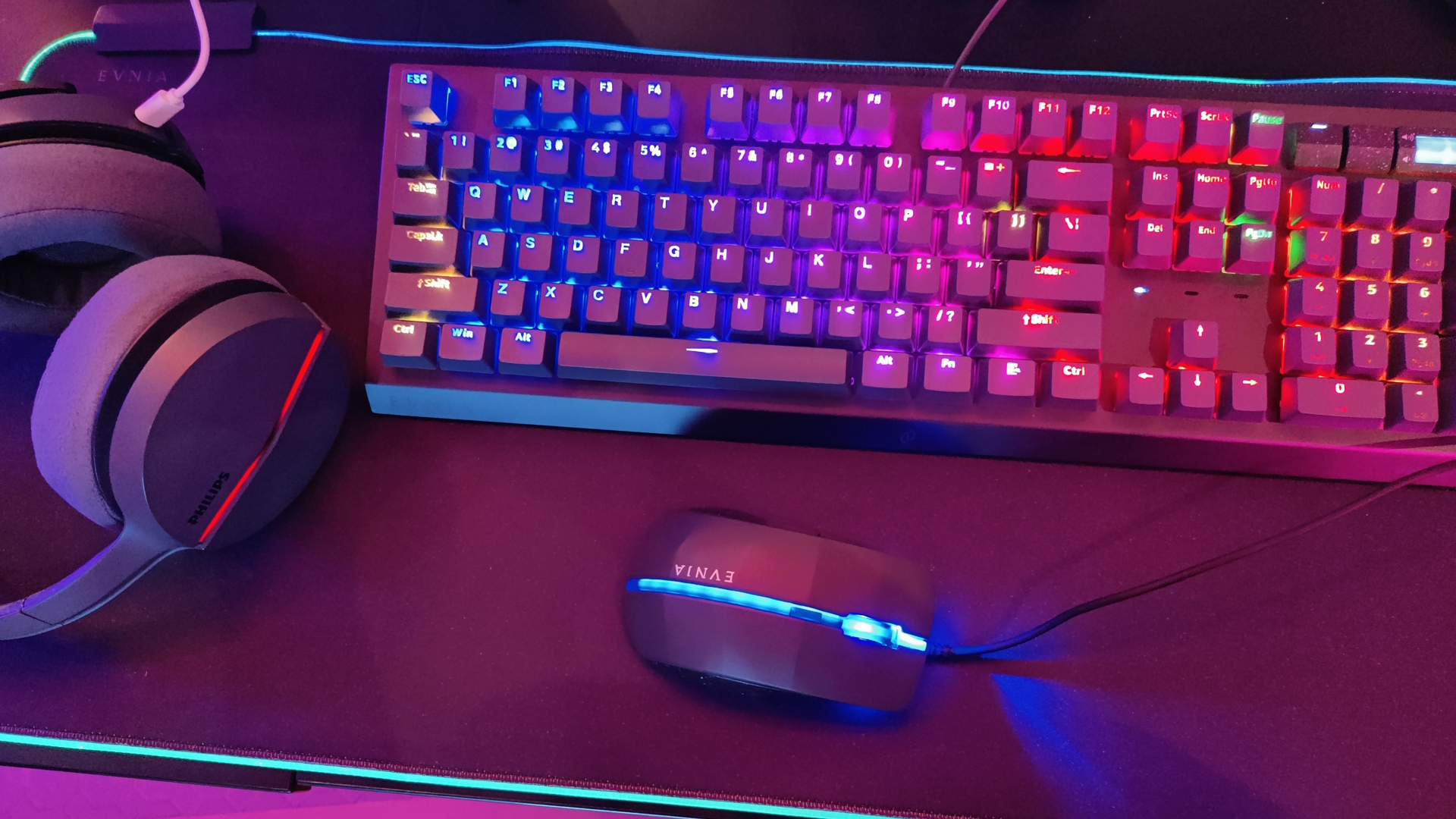
We know what you're thinking: I've got an old keyboard or mouse knocking around that'd do just fine. While that might be the case, a proper gaming keyboard or gaming mouse really does make a big difference, as these are the tools you'll use to interface with your games. What you've physically got your hands on can be the difference between a premium-feeling experience and a cheap and nasty one, and the good news is you don't have to spend a huge amount to get something really great.
A prime example being the Logitech G305 Lightspeed, currently taking the top budget spot in our best gaming mouse guide. You can pick up one of these little squeakers for around $35, and it'll likely be much better for gaming than any regular mouse you might be thinking of salvaging from another PC.
Keyboards too. A great gaming keyboard won't just be something you'll use for entertainment, as the best keyboards will also have lots of functionality, a great typing feel, and build quality that means they'll last for years to come.
Peripherals might initially feel like a bit of an afterthought, but take it from a team that's used just about everything you can possibly think of: Good ones are absolutely worth spending a little bit more cash on, to make sure you have the best gaming experience.
Gaming headphones and speakers
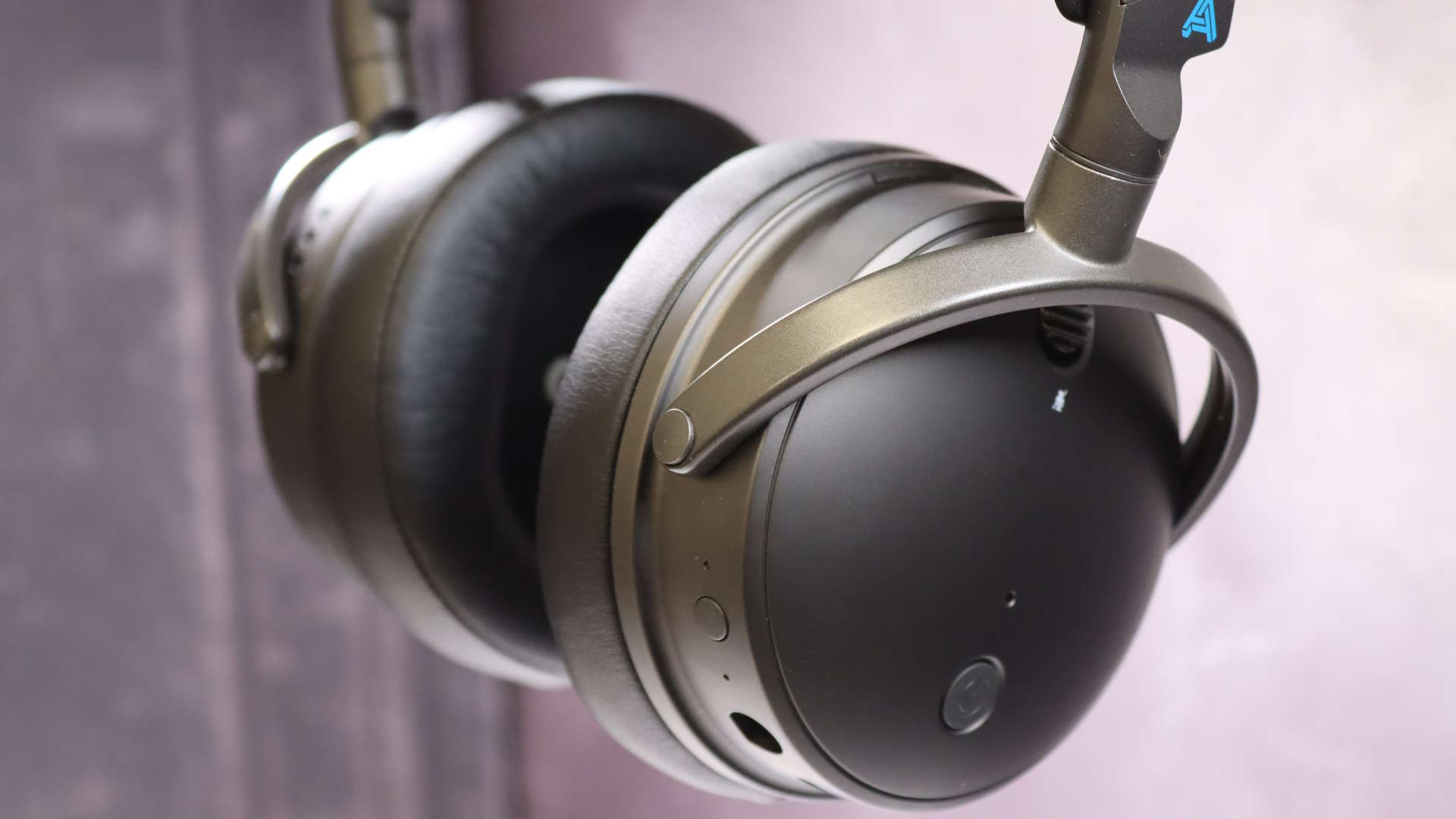
Imagine watching a movie on mute, or through tinny phone speakers. No matter how good the action on screen, less-than-stellar sound will significantly lessen your enjoyment of the film, and games are just the same.
The best PC speakers for gaming will not only deliver seminal sound, but in the case of some of the 2.1 or 5.1 units can even deliver room-shaking and all-encompassing audio that turns your PC into a full on multimedia powerhouse.
If you're worried about annoying your living companions or neighbours, however, then we'd highly recommend a great set of headphones. Again, these can go from cheap and cheerful but highly effective units all the way up to audiophile-grade cans that can genuinely change the way you hear not just your games, but all your favourite music as well. Not to mention that most gaming sets come with great mics, meaning your multiplayer experiences can become a whole lot more social, should you so choose.
Sound is immersion, and immersion in your PC gaming experience can be found through many, many different avenues. Grab a good set of phones or a great set of speakers, and they'll follow you around delivering exceptional audio for years to come.
Gaming chairs
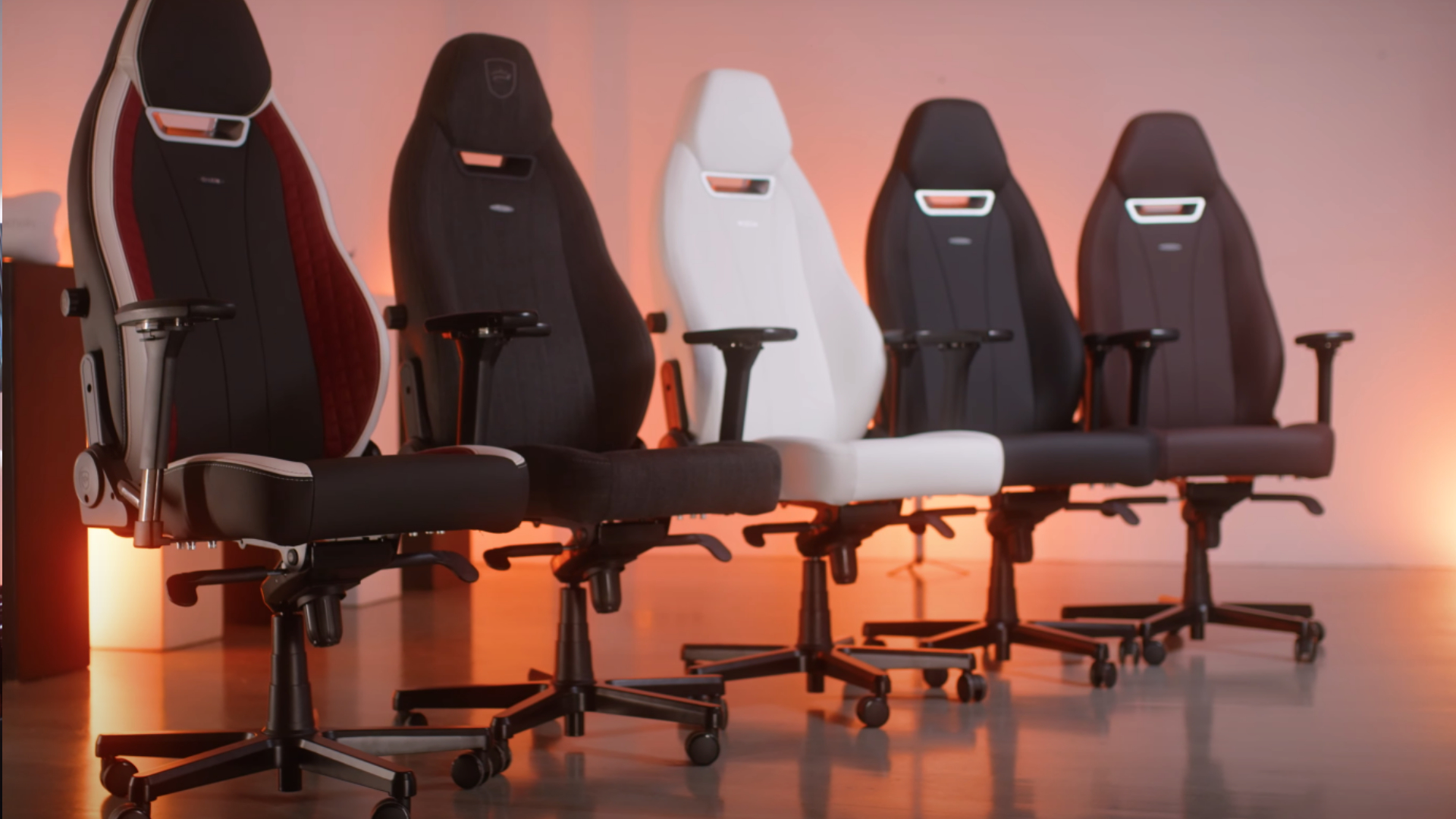
PC gaming is many things, but an active, all-body exercise experience isn't exactly one of them (unless you're looking to get into VR, in which case we have VR headset recommendations too). You're likely going to be sitting, and if your system is as good as we hope it is, you'll probably be there for a while. You're going to need a chair that isn't just comfy, but supportive and good for your spine too.
The best gaming chairs will make a long gaming session feel like practically nothing. I know that sounds like salesmanship, but in all honesty, you can ask anyone in the PC Gamer office about which chairs they prefer and they'll happily chew your ears off about the best and the worst they've sat in, and what a difference it made to their lives.
No matter your body shape, size or preferred seating position, there's absolutely something out there that will make a world of difference to your gaming sessions, and of course can be co-opted into your day-to-day work usage too. Another vital piece of the puzzle that, when bought with an informed perspective, can last for years, even decades with the right model.
Don't skimp on your spines, people. Get something comfortable, well-made and supportive, and quite literally feel the change it makes to your daily life.







